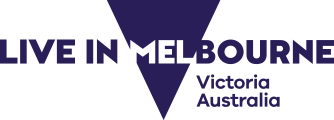"The application process was quite straightforward which was great."
Dr Simon Bodek has had a unique introduction to life in Australia.
Originally from Manchester in the north of England, Simon landed in Melbourne in November 2019 on a skilled migration visa.
“I feel like I arrived just in time for the bushfires and then we went straight into COVID,” he said. “It’s been interesting with so many transitions happening at once.”
Simon has worked in genetics since 2012, and as a consultant clinical geneticist since 2017. He left his job in Bristol in England’s south west and migrated to Melbourne to begin a role at Austin Health, and has been working remotely since April.
Simon was selected by Victoria’s skilled visa nomination program and now has permanent residency.
“At the time when I was looking to migrate, the Austin happened to be looking for a geneticist – my area is quite a small field, there aren’t many people trained to do it,” he said. “The application process was quite straightforward which was great.”
Simon was heavily involved with the 100,000 Genomes Project in the UK, a world-first clinical research initiative that sequenced 100,000 genomes from around 85,000 patients affected by a rare disease or cancer.
He says the ties between the Victorian Clinical Genetics Services at the Royal Children’s Hospital and the genetics services he worked with in the UK contributed to his decision to migrate here.
“Australian genetics work has a strong reputation internationally and has quite close ties to the UK,” said Simon. “And obviously Melbourne is renowned for being a great place to live, it tops the global charts for liveability.”
A lot of Simon’s work focuses on preventative care, screening Victorian families who may have an increased risk of inherited diseases.
“Our cancer genetics work looks at families where there is a strong history of cancer, where we’re looking to see if they have a genetic predisposition,” Simon said. “We can do predictive testing in their relatives and put screenings in place for people who are at risk, for example of hereditary breast or ovarian cancer.”
In his role at Austin Health Simon also tackles the challenge of building our knowledge of, and treatment capability for, rare inherited diseases.
“About seven per cent of people in Australia have a rare disease,” he said. “While each disease might only affect one in a million people, because there’s so many of them it has quite a big health impact on the population.”
While not treating COVID-19 patients directly, Simon and his team were acutely aware of the role they could play in Victoria’s health response when the coronavirus (COVID-19) pandemic hit.
“We’ve transitioned to working remotely to help keep people away from the hospitals – a lot of space in our hospitals, in outpatient settings and in the wards, had to be commandeered for the COVID response,” he said. “We wanted to work from home as much as possible to prevent people from having to go to hospital and risk infection, but also to free up space for the COVID clinics.”
It has been an extraordinary year since he moved to Melbourne, but Simon is looking forward to embracing his new home state and continuing to bring his specialist knowledge to Victoria’s health and medical research fields.
